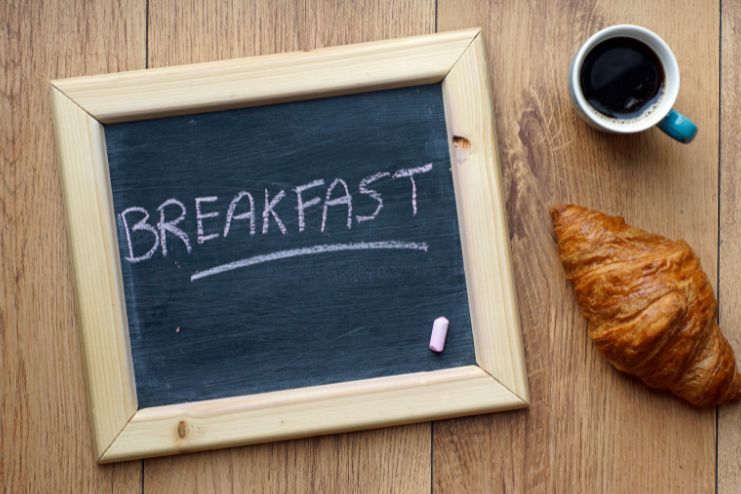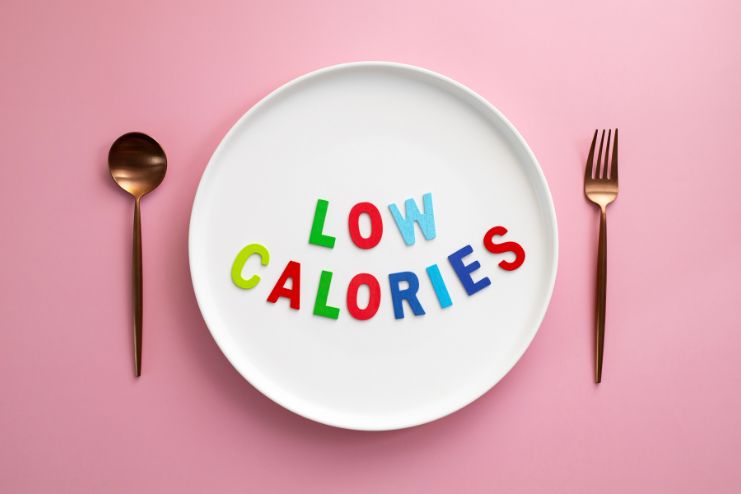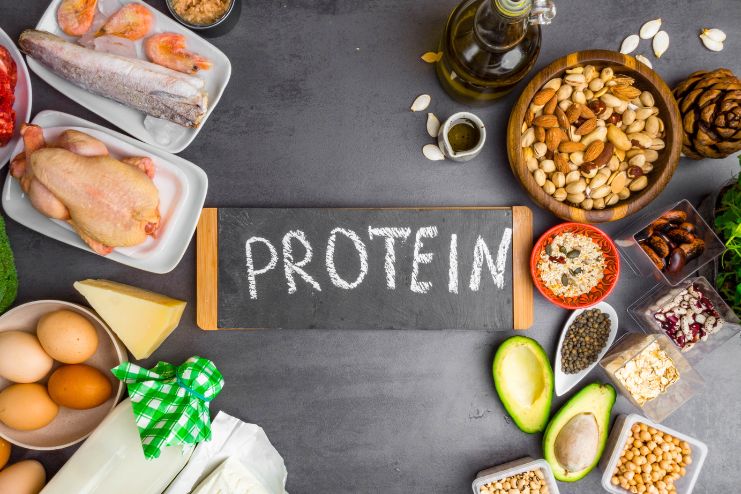You might be eating breakfast, but are you accidentally hitting snooze on your metabolism?
We’ve all been told that breakfast is the most important meal of the day. But how that meal appears—and when or if you consume it—can either fuel or derail your metabolism. Your morning meal habits are a key determinant of how well your body burns calories, regulates blood sugar, and sustains energy levels during the day.
In this article, let’s discuss the 8 seemingly harmless breakfast mistakes that could be slowing your metabolism.
8 Breakfast Mistakes That Could Be Slowing Your Metabolism

Here are 8 typical breakfast errors that can be keeping your metabolic engine slow, and tips on how to create a metabolism-friendly breakfast instead.
Read More: 15 Ways To Boost Metabolism – Science Backed Hacks
1. Skipping Breakfast Altogether

Though intermittent fasting is trending, skipping breakfast regularly might do more harm than good to your metabolism, particularly for women. Your body needs fuel after an overnight fast. After an overnight fast, your body craves fuel. Delaying breakfast may signal energy conservation mode, leading to a slower resting metabolic rate and reduced fat oxidation.
Possible side effects:
- Disturbed blood sugar levels and insulin sensitivity
- Increased hunger and overeating later in the day
- Fatigue, mood swings, and brain fog
A study in Nutrients reported that individuals who consumed breakfast had better glycemic control and metabolic well-being than breakfast skippers.
Read More: How to Boost Your Metabolism for Weight Loss
2. Eating a High-Sugar, Low-Protein Breakfast

A sweet bowl of cereal, flavored yogurt, or a pastry for breakfast may taste quick and convenient, but such meals lack the protein that would help stabilize blood sugar. The result? Glucose spikes, insulin highs, and a mid-morning crash.
Higher-protein breakfasts lead to improved regulation of appetite and blood glucose all day, based on a ScienceDirect review.
Replace sugary breakfasts with choices that contain:
- 20–30 grams of protein
- Complex carbohydrates that contain fiber
- Slow-digesting healthy fats
3. Not Eating Enough Calories

Just having black coffee or a piece of fruit may feel like a light and healthy start, but your body reads that as scarcity, not nourishment. When your caloric intake is too low, the body may shift into energy-saving mode, slowing your metabolic processes.
Why this matters:
- Insufficient calories reduce thermogenesis (heat and energy production)
- May lead to brain fog, poor focus, and intense cravings later
- Muscle preservation and hormonal balance are compromised
Start your morning with a balanced breakfast to rev up digestion and support metabolism from the get-go.
Read More: 4 Morning Detox Drinks You Can Make in 2 Minutes or Less
4. Skipping Protein

Protein is the foundation of a metabolism-stimulating breakfast. Not only does it assist in keeping lean muscle mass (which expends more calories at rest), but it also possesses a high thermic effect—meaning your body body burns more calories digesting it than it does for fats or carbs.
Breakfast tips with high protein:
- Include eggs, Greek yogurt, cottage cheese, or protein powder
- Aim for 20–30 grams of protein
- Protein satisfies and suppresses late-night snacking habits
5. Not Hydrating First Thing

Water is crucial in all metabolic processes, ranging from digestion to the burning of fat. Beginning the day in a state of dehydration reduces cellular metabolism and calorie-burning potential.
Science confirms:
- Even moderate dehydration will slow metabolic efficiency
- Consuming water will transiently increase metabolic rate by as much as 30%
- Water helps digest, transport nutrients, and eliminate toxins
Instead of reaching for that morning cup of coffee, hydrate with water or lemon water to activate your metabolism.
6. Drinking Only Coffee

Caffeine can provide a short-term energy boost, but consuming it on an empty stomach can create a spike in cortisol, releasing blood sugar and metabolic stress.
Why does it fail?
- Suppressing appetite early can result in binge eating later
- Zero nutrients = zero fuel for metabolic function
- High cortisol can mess with your insulin and fat storage mechanisms
Support your morning metabolism habit by combining coffee with a nutrient-dense meal that contains protein, fiber, and healthy fats.
7. Eating Too Late in the Morning

Waiting too long to eat after waking up in the morning disrupts your circadian rhythm—the internal clock that regulates hormones, appetite, and metabolism. Research conducted by UCLA Health indicates that waiting to eat decreases overall metabolic rate and compromises fat metabolism.
Why timing is important:
- Your body is most sensitive to insulin during the early morning hours
- Eating 1–2 hours after waking up corresponds with natural metabolic cycles
- Delayed meals have been shown to promote fat storage and decrease calorie burning
Include breakfast in your morning routine, not as an afterthought.
8. Overloading on Refined Carbs Without Fiber or Fat

White toast, bagels, and pancakes with refined flour will bring on a quick spike and crash in blood sugar. With no fiber or fat, these foods digest too fast, making you hungry and tired soon.
Refined carbs, the Carbohydrate-Insulin Model says, can lead to fat gain and slow metabolism.
Breakfast ideas to boost your metabolism:
- Sprinkle chia seeds, nut butter, or avocado on your toast
- Top oatmeal with flax, berries, or Greek yogurt
- Select whole grains and high-fiber carbs in place of refined carbs
Read More: Why Meal Timing Matters: Eating for Energy and Recovery
How To Build a Metabolism-Friendly Breakfast

To give your metabolism the boost it deserves, your breakfast must provide more than calories—instead, it must be a calculated mix of nutrients that feed your body, regulate blood sugar, and keep you satisfied for hours.
This is what an optimal metabolism-supporting breakfast entails:
Protein (20–30g):
Promotes muscle repair, enhances fat burning, and satisfies hunger.
Examples: Eggs, Greek yogurt, cottage cheese, tofu scramble, protein shake
Healthy Fats:
Slow down digestion, encourage satiety, and aid hormone balance.
Examples: Avocado, nut butter, chia seeds, flaxseed, olive oil
Fiber-Rich Carbs:
Supply sustained energy, nourish gut bacteria, and avoid sugar crashes.
Examples: Steel-cut oats, whole-grain toast, berries, sweet potatoes, cooked quinoa
Hydration:
Starts digestion and metabolic processes after overnight fasting.
Best choices: A glass of water, lemon water, or herbal tea before coffee
Quick Breakfast Combo Ideas:
- Scrambled eggs + avocado toast + berries
- Greek yogurt + chia seeds + banana + almonds
- Oatmeal with flaxseed, cinnamon, and a scoop of protein powder
- Tofu veggie scramble + quinoa + green tea
Pro tip: Try to eat within 1–2 hours of waking up in order to stay in line with your body’s natural metabolic cycle.
Final Thoughts

Breakfast is not merely about consuming food—it’s about giving the right metabolic signals.
From skipping meals to piling on sugar or neglecting protein, your breakfast routine may be the sneaky culprit of slow metabolism. The best news? Small adjustments in your morning metabolism routine can make a big difference in energy, weight, and wellness.
Final takeaway: Fuel your body in the morning, and your metabolism will reward you all day long.
References
- https://pmc.ncbi.nlm.nih.gov/articles/PMC6082688/
- https://www.uclahealth.org/news/article/research-suggests-eating-later-may-lower-metabolism
- https://timesofindia.indiatimes.com/life-style/health-fitness/health-news/how-hydration-fuels-your-metabolism-and-elevates-well-being/articleshow/120132640.cms
- https://www.henryford.com/blog/2021/07/skipping-breakfast
- https://pmc.ncbi.nlm.nih.gov/articles/PMC8568444/
In this Article




![Best NAD+ Supplements for Energy, Aging, and Cellular Health [2025 Edition] Best NAD+ Supplements for Energy Aging](https://www.healthspectra.com/wp-content/uploads/2025/05/Best-NAD-Supplements-for-Energy-Aging-218x150.jpg)















